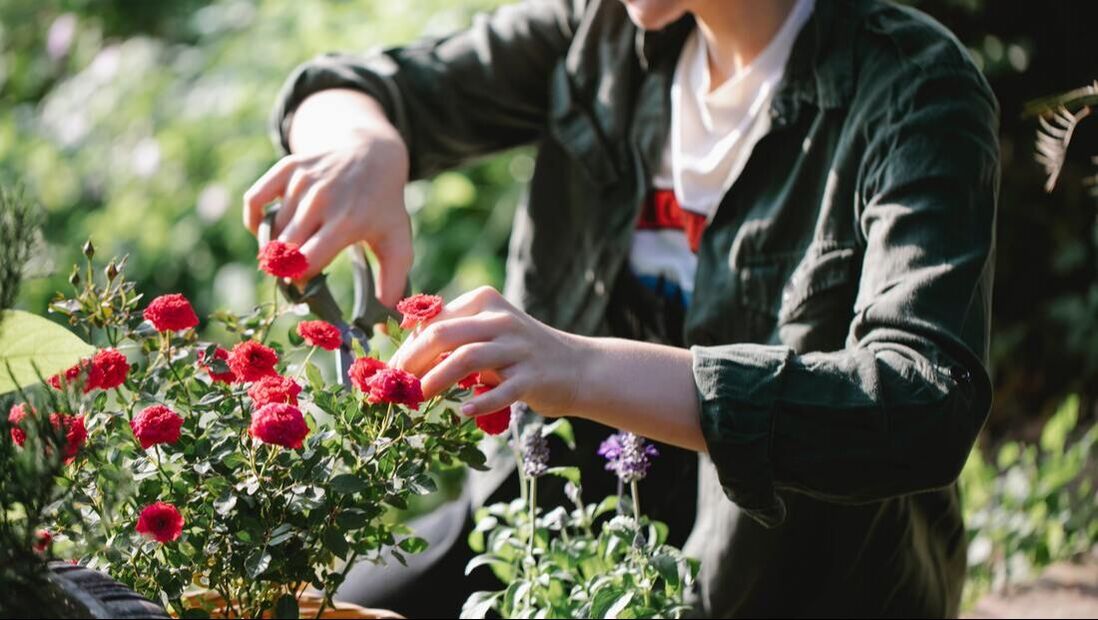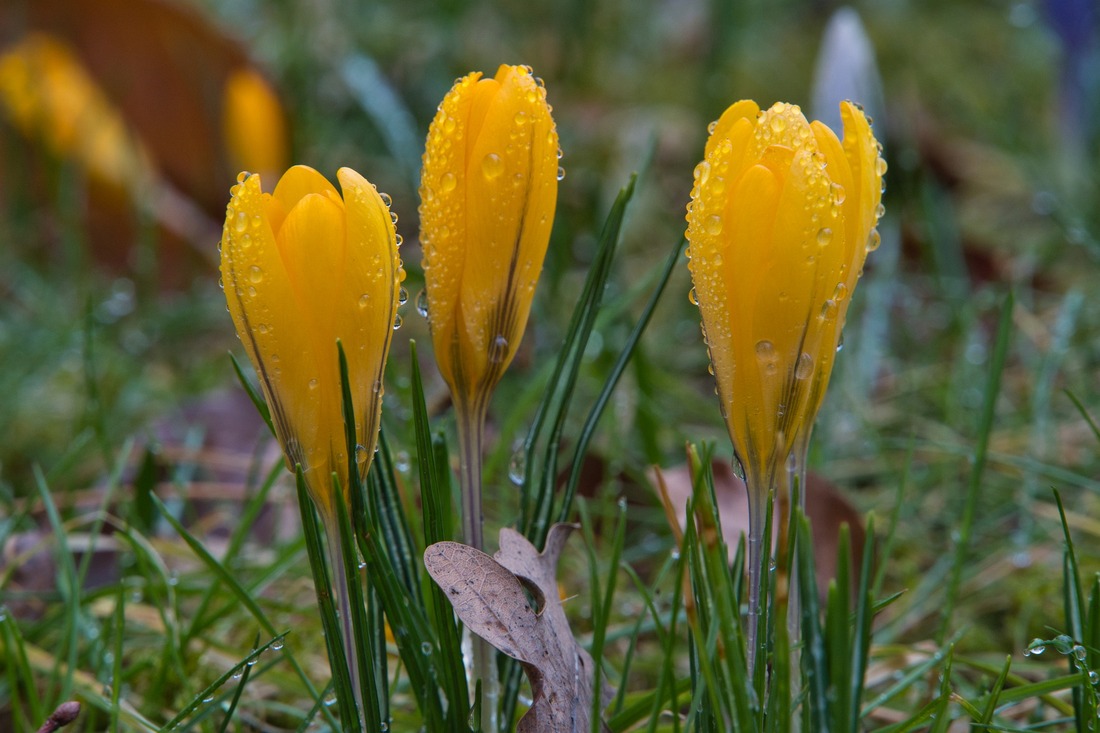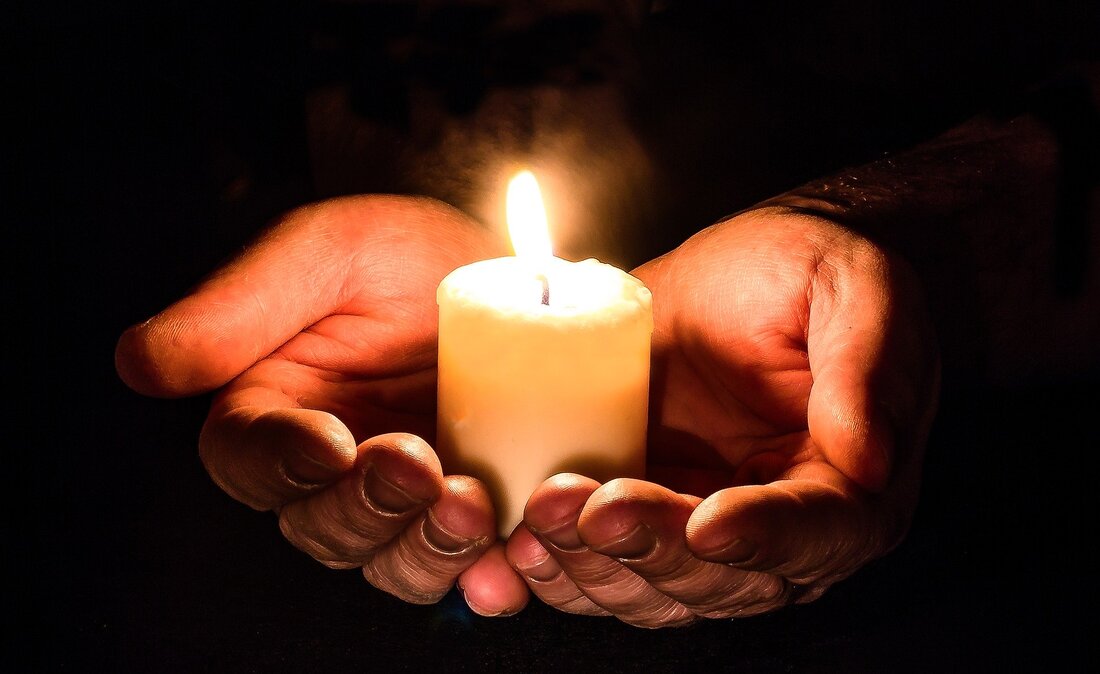|
I find some of the thoughts in the Meditations of Marcus Aurelius quite profound. They make me reflect and think more deeply. Aurelius was a Stoic philosopher and an Emperor of Rome in the second century. Book 2 of his meditations was written around 170 AD on the Gran River, a tributary of the Danube, during a campaign against the Quadi, an invading Germanic tribe. In meditation 14, Aurelius reflects on the gift of the present moment, and I imagine him in his tent, weary and in his battle gear, thinking on the value of this fleeting life:
Even if you are going to live three thousand more years or ten times that, remember: you cannot lose another life than the one you are living now, or live another one than the one you are losing. The longest [life] amounts to the same as the shortest. The present is the same for everyone; its loss is the same for everyone, and it should be clear that a brief instant is all that is lost. For you cannot lose either the past or the future; how could you lose what you don’t have? Now, eighteen centuries later, the present moment is still all we have to embrace or lose. We can plan for the future or think about the past, but we cannot “possess” it. So, embrace this present moment, this gift of time, be in it with God and live it with all your heart. Brian Holliday Image by frankspandl from Pixabay
0 Comments
This week I came across Rowan Williams’ book Meeting God in Mark. It a beautiful and profound meditation on Jesus’ miracles and teaching, and on the great lengths Jesus took to explain the true nature of God and God’s work in the world.
In his reflection, Williams describes how Jesus, before performing a miracle, stooped to interact with the sick and needy. He wanted to establish a genuine relationship with them, a relationship of trust. If there was no relationship of trust, Jesus didn’t perform a miracle. Then, surprisingly, Jesus often told them to tell no one! He didn’t want his message about God and God’s actions to be about miracles. Rather, Jesus’ persistent message was that God’s kingdom wasn’t coming through external power imposed on people from heaven, but it was coming from within, operating from the inside out. Look around you, said Jesus, in the every day, in the way crops grow in the field, the way seeds turn into giant trees, the way a child is born, and the way yeast causes dough to rise. God’s power acts quietly, mysteriously, out of sight, transforming from the inside out. As Williams puts it: How does God work? Subtly, slowly, from the very depth of being. Or steadily, irresistibly, like light reaching the corners of the room. [God] works outward from the heart of being into the life of the every day – not inwards from some distant heaven. This is how God works, [says Jesus,] and you ought to be able to see it in the world around you in the world God has created and rules. We just have to have eyes to see and hearts to trust. May you look around you this Lent, and notice everywhere the joy of God’s quiet, hidden, mysterious work, transforming from the inside out. May you also sense within you the stooping, loving Jesus, who gently seeks a deepening relationship with you. Brian Holliday Photo by Gary Barnes from Pexels (With an apology to those who have not read Winnie-the-Pooh.)
In 1996, Christopher Robin Milne, the only child of the author AA Milne, died. He was immortalized by his father in the stories of Winnie-the-Poo as the character Christopher Robin. On hearing the news, the poet Czeslaw Milosz wrote a piece about Christopher Robin from the perspective of Pooh Bear who was thinking about ‘matters too difficult for a bear of little brain.’ Christopher Robin had momentarily disappeared from the Hundred Acre Wood, so Pooh questions him when he comes back. Christopher Robin tells Pooh he had fallen into the well, and, as he fell deeper, he grew into to an adult, became very old, and finally died. Then he was back in the woods again with his friends, and he explains to Pooh: It was probably just a dream, quite unreal. The only real thing was you, old bear, and our shared fun. Now I won’t go anywhere, even if I’m called for an afternoon snack. What a lovely picture of heaven – after this very short life we live, it’s like returning to old friends as Christopher Robin did with Pooh Bear, Piglet and Eeyore in the Hundred Acre Woods. Czeslaw Milosz, who went through the horrors of the Second World War, often imagined heaven as a return to an idyllic childhood, a winding back of the pain and ruptures of adulthood to the innocence and carefree delight of childhood. It reminds me of Jesus’ words in Matthew 18: I’m telling you, once and for all, that unless you return to square one and start over like children, you’re not even going to get a look at the kingdom, let alone get in. Whoever becomes simple and elemental again, like this child, will rank high in God’s kingdom. What’s more, when you receive the childlike on my account, it’s the same as receiving me. (The Message) Jesus, my friend, is inviting me to take time to relax and share in his friendship with an innocent and carefree delight! May you, too, find space this week to relax and share a childlike delight in your friendship with Jesus. Brian Holliday There are two verses in Isaiah that strike me as descriptive of the extravagance of God’s compassion. In the version I read most mornings, Isaiah 5:7-8 speaks of God’s great compassion and then follows it by saying,
with everlasting love I will have compassion on you. In the Message it says, with lasting love I will tenderly care for you. It sounds almost like a tautology to me, a ‘needless repetition’ of terms, to conflate in one breath God’s everlasting love and God’s compassion or tender care. Yet there it is. So I have tried to sit with a sense of that luxurious extravagance of God’s deep, loving compassion. To personalize it, to bath in it and to pray for it for those whom I know are in great need, that they will know that God, with deep love, tenderly cares for them. May you, too, have pause this week to bath in the luxurious extravagance that God, with everlasting love, tenderly cares for you. Brian Holliday Last week we had the first Dayspring Community Quiet Day for 2021, and, as I was pondering the lectionary readings for this coming Sunday, the Latin term carpe diem came to mind.
Carpe diem became a familiar term after the 1989 movie, Dead Poets Society. In the movie an unorthodox English teacher, played by Robin Williams, urges his class of boys to ‘live extraordinary lives’. He whispered to them to carpe diem, which, in the movie, is translated as ‘seize the day’. Since the captivating performance of Williams, the expression has become a common motto, even appearing on bumper stickers. It has inspired people to take a hold of the opportunities that come their way, to get up and grab hold of their life, to make it full and successful. But, according to Encyclopedia Britannica, a better translation of carpe diem is ‘pluck the day’ or enjoy life while you can. Go out and pick the flowers, smell the roses, and enjoy the moment. To me, this slightly different translation has a sense of being fully in the present moment, and savouring it for all it is worth. This is captured well in Gregory Orr’s poem from his book, How Beautiful the Beloved: Ask the tree or the house; Ask the rose or the fire Hydrant – everything’s Waiting for you to notice. Everything’s waiting for you To wrap your heart around it. That music has been playing Since you were born. You must be mad to resist it. Always the beloved Surrounds us, Eager to dance. All we have to do is ask. This week, may we be aware that the beloved surrounds us, and may we wrap our heart each day and savour it to the full. Brian Holliday Image - VectorStock ‘Generous’ is a commonly used word. It can describe the characteristics of a person or the size of the serve of chips at the local fish and chip shop. Because it is such a common word, I find it rather bland. For me, a richer meaning comes to life in a couple of older words that are not so commonly used today. The first is ‘magnanimous’ which comes from the Latin magnus meaning great, and animus meaning soul. A magnanimous person is someone who has ‘great soul’! It is used to describe a person who is being generous or forgiving, especially towards a rival or less powerful person. The second word is ‘munificent’ which also comes from Latin, munificus meaning bountiful. The definition of munificent is giving or sharing in abundance and without hesitation. It describes someone who is bighearted and bounteous, without hesitation! God is generous! God is magnanimous, having ‘great soul’. The letter of Paul to the Romans brims with descriptive references to God having ‘great soul’, telling us how even when we were ‘weak and rebellious’ the love of God was poured out on us and now ‘we can’t round up enough containers to hold everything God generously pours into our lives through the Holy Spirit!’ God is also munificent, being bighearted and bounteous, sharing everything with us in abundance and without hesitation. In Genesis, Abraham shows us God’s munificence. I love the picture of Abraham who, at 99 years of age, runs to greet three strangers who visit him. Then the almost 100 year old man runs to get a meal ready for them. He is so generous without hesitation. So is God! And just as God did not wait for everything to be okay with us before being generous to us, so we do not need to wait for everything to be ‘right’ before we are generous in this on-going time of corona virus. And it is not just about being generous with material things or money which may be tight for many in this time of high unemployment and lock-down. But, more challengingly, it can be about giving of our own selves. As Simone Weil insightfully puts it, ‘Attention is the rarest and purest form of generosity’. Giving our full attention to God is generous, or giving our undivided attention to those around us is generous. When we have been neglecting our self, giving our self our full, loving attention can be generous. In these simple but challenging ways we can be people who have ‘great soul’, people who are bighearted, even in a time of restrictions and coronavirus. Brian Holliday Image by Anrita1705 from pixabay
As I look outside my window this week, the world around me has been softened with winter rain and leaden skies. I can hear the screech and long guttural cawing of the black cockatoos in the macadamia tree next door. The black cockatoos come each year when the macadamias are ripe and wet with winter rain. Their chorus is raucous noise rather than tuneful song. Yet their welcome arrival, from who knows where, heralds the changing of the seasons. Summer’s simmering heat giving way to winter’s wind and rain. I sense a peace and gentleness in the softened, smiling world, and a joy in the return of wild and raucous beauty. And as with the shifting season in the world around, so the season of hard lockdown is shifting into a tentative season of new beginnings. And I take a moment to reflect on the inner seasons of my heart and soul, and how deeply the outer seasons reflect and shift my inner world. I bless you God for the beauty and the harshness of this place, and for the eternal rhythm of the seasons, both inner and outer. How deeply, I, who struggles with change, am also blessed by change. And as you look upon the world around you this week, may you too be blessed by the mysterious beauty and the eternal rhythm of the seasons, both the inner and outer. Brian Holliday During the week while browsing an online bookstore (as a librarian does), a comment about Walter Brueggemann caught my attention. In a recent book which is a compilation of his essays, he makes the point that truth must precede hope; otherwise hope is in danger of being a ‘false hope’.
We see evidence of this in today’s world where fake news and political spin seek to deny reality and to give us ‘false hope’. However, in facing up to the truth – both in the difficult and troubling times we try to avoid, and in the good and beautiful times we easily embrace – we can find the possibility of real hope. In reading these words I suddenly had a sense of why God is known as both the God of truth and the God of hope. And so, as we face our own truth in these topsy turvy times in which our difficulties and our joys may be quite hidden from others, I pray for you the Wednesday benediction in Dayspring Daily Prayers: May the God of hope fill you with all joy and peace in believing, so that you may abound in hope by the power of the Holy Spirit. Amen. (Romans 15:13, NRSV) Yes, may the God of truth and hope bless you this week. Brian Holliday In our ‘online church’ we have been discussing the vexed question of petitionary prayer. Does God answer prayer? Is there any point in praying? In this time of worldwide crisis what do we ask for? How can we pray for so many needs? Do our prayers make any difference?
We didn’t find answers to these questions, but we finished our discussion feeling encouraged to keep praying in the ways that each of us can. For me, I have been captivated by the words in Evelyn Underhill’s poem ‘High Tide’, The Moon of prayer, That by the invincible sorcery of love God’s very self can move ... (An Anthology of the Love of God, p122) It is the mysterious ways of love between lovers which moves God, and not so much our words. Love and prayer, so deeply entwined, are equally mysterious in their effects. So as I pray I can be aware that it is not so much my words that are important, but it is God’s love and longing toward us all. May the sorcery of love, in all its mystic and allure, be in and through your prayers and journey with God this week. Brian Holliday What does it mean to ‘bless’? It is not an easy word to define. The Merriam-Webster dictionary gives a range of meanings, which include
A blessing is a form of grace; it is invisible. Grace is the permanent climate of divine kindness. To bless is certainly similar to being loving towards, to think well of, and to do good for others. In the midst life, whatever it throws up for us, God blesses us, but sometimes that can be hard for us to recognize. The disciples found it difficult to recognize the blessing in Jesus’ death until after the resurrection and the coming of the Holy Spirit. The philosophers at Athens were unaware of the blessings offered to them by the ‘unknown God’ until Paul’s impassioned oration on Mars Hill. We, too, are called to be like God in blessing others in both the good and the hard times, in all the ordinariness of life. To bless is like O’Donohue’s phrase, ‘the eucharist of the ordinary’: We seldom notice how each day is a holy place Where the eucharist of the ordinary happens, Transforming our broken fragments Into an eternal continuity that keeps us. God has blessed us so much, and God’s blessing far outweighs and out performs any blessings we might give. But in seeking to bless, to be loving no matter what life is throwing at us, we behave like God, like Jesus. And when we bless, even in difficult times, says Peter, we will find ourselves blessed as well! Brian Holliday |
AuthorSelected members of the Dayspring Community make contributions to this page on a regular basis. Archives
May 2023
Categories |

Dayspring acknowledges the role of First Nations people as the traditional custodians of the land on which Dayspring Events are held. Dayspring recognizes their unbroken continuing connection to land, water and community, their efforts to preserve and strengthen their culture and language and pays respects to elders past present and emerging who share in this work.
Except as permitted by the copyright law applicable to you, you may not reproduce or communicate any of the content on this website, including files downloadable from this website without the permission of the copyright owner.
EMAIL: Info@Dayspring.org.au
© Dayspring Community (WA) Inc. 2023
Except as permitted by the copyright law applicable to you, you may not reproduce or communicate any of the content on this website, including files downloadable from this website without the permission of the copyright owner.
EMAIL: Info@Dayspring.org.au
© Dayspring Community (WA) Inc. 2023
Proudly powered by Weebly











 RSS Feed
RSS Feed